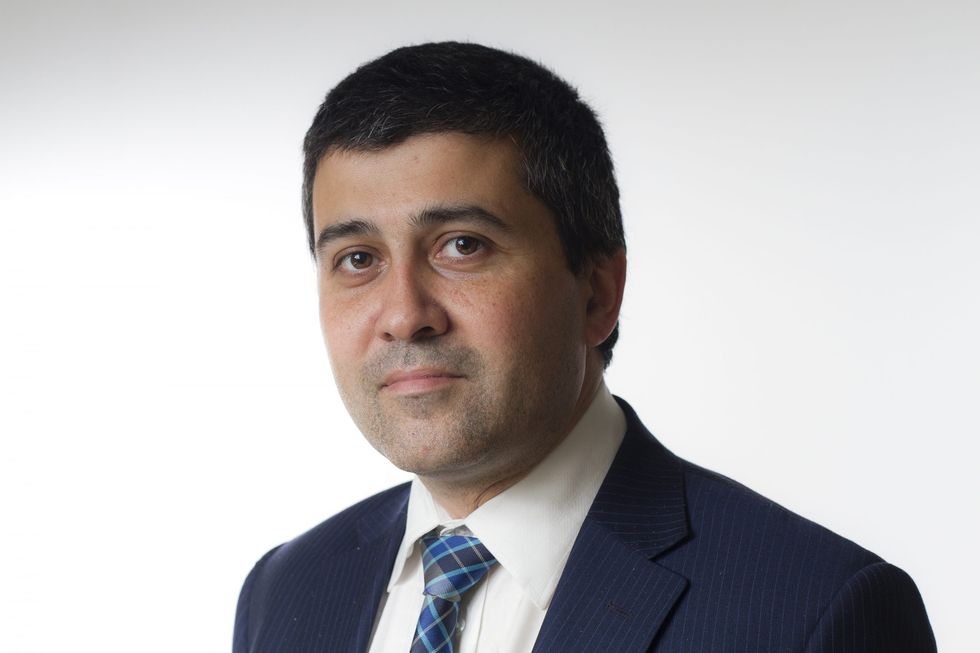UKRAINE’S president Zelensky dominated the week in Westminster, finding the perfect pitch for his country’s case to resonate with his hosts.
Giving Churchill’s ‘V for Victory’ sign and theatrically using a pilot’s helmet to deliver his “give us wings for freedom” message saw his appeal for British planes generate an unusual unanimity across the next day’s front-pages, from the Mirror and the Daily Mail to the Times and the Guardian.
If Ukraine’s cause united Westminster’s political tribes, the usual domestic hostilities returned immediately. The next item of Commons business saw home secretary Suella Braverman present William Shawcross’s independent review of the Prevent programme to the House. Counter-terrorism ought to reach across party lines too, but this was a tetchy debate dominated by partisan sparring about inconsistency and bad faith.
Zelensky’s visit relegated the Prevent review to something of a footnote. The Shawcross report did not even merit a brief mention on the BBC 10 o’clock News.
Almost the sole aspect of the review to generate attention was Shawcross’s concern that too much attention to far-right extremism could divert resources from preventing Islamist-inspired terrorism. A tug-of-war over which threat matters most obscures the scale of expert consensus on the key issues.

Few doubt the single greatest threat comes from Islamist-inspired terrorism, there is a rising challenge from far-right extremism, and the shifting dynamics of offline and online extremism during and beyond the pandemic creates new challenges.
Shawcross was ostensibly making a case for more consistency in thresholds. But he undermined his argument by making it inconsistently. He incorrectly opens the review by declaring all six terrorist attacks since the review was commissioned in January 2019 were inspired by Islamist extremism.
If he had used his own appendix, he might not have forgotten that the Stanwell stabbing by a white supremacist seeking to kill Muslims had been deemed a terrorist act. The further omission of the fire-bombing of a Dover migrant centre last November may be because nobody reviewed or updated the report, which ministers had been wrangling over since last spring.
In discussing present and future threats, Shawcross acknowledges the far right “will endure and may metastise”. He says Prevent “pivoted encouragingly quickly” to deal with it, but wants to keep that focus proportionate. Remarkably, that perfunctory paragraph is followed by two “on the potential radicalisation connected with the law-breaking, civil disobedience and disruptive activities broadly associated with anarchism or the Extreme Left”.
Shawcross argues for a “back to basics” focus, yet keeps making exemptions for his own preferences. So, Prevent should also focus more proactively on blasphemy, because “our national culture of free speech must be fiercely protected”. He correctly observes that anti-Semitism remains a key driver of both far right and Islamist extremism, but worries that too much focus on anti-Muslim hatred could leave Prevent “overloaded”. He is sceptical of the
rising Prevent referrals of those being radicalised towards extremism with an unclear or mixed ideology.
But there are difficult dilemmas here. In Plymouth, an inquest is looking into a shooting spree that killed five – the gunman was socialised towards violence in misogynistic Incel forums on Reddit. One of his victims, his mother, had referred him to Prevent back in 2016. What happened about that is a key issue for the coroner, though if Shawcross’s recommendation that Prevent referral data is scrapped after just three years was in place, the inquest would not know about it. Shawcross would deprioritise this type of radicalisation, because it is extremism and hatred, but not terrorism. But if Prevent does not pick this up, it is not clear who would.
The review’s methodology is often anecdotal. The reader finds out very little about the 430 responses to the call for evidence. There is no grappling with the complex question of what works in preventing radicalisation, so little clarity of the evidence for the recommendations. The call for more resources to go into myth-busting and fact-checking critics of the Prevent programme will have a political appeal – but its efficacy as a counter-terrorism intervention would be, at best, indirect.
The home secretary told the Commons she would like to “no platform” Prevent’s critics – like the National Union of Students – on campus. This shows further rhetorical confusion in the government’s contrasting messages about free speech, cancel culture and rejecting extremism.
The Shawcross review will reinforce a longstanding polarisation between Prevent’s staunchest champions and its most vocal, largely unengageable, critics. Though Braverman accepted the 34 recommendations in full, the Shawcross review is likely to have a short shelf-life. Labour, likely to be in government next year, find it selective and unconvincing.
There was a lack of community engagement and the voice of victims is absent. There was a decade between this review of Prevent and the last one. The next government might find itself repeating the exercise rather more quickly.





 Heehs describes two principal approaches to biographyAMG
Heehs describes two principal approaches to biographyAMG












 David Beckham wearing a David Austin Roses "King's Rose" speaks with King Charles III during a visit to the RHS Chelsea Flower Show at Royal Hospital Chelsea on May 20, 2025Getty Images
David Beckham wearing a David Austin Roses "King's Rose" speaks with King Charles III during a visit to the RHS Chelsea Flower Show at Royal Hospital Chelsea on May 20, 2025Getty Images
‘Polarisation on Prevent follows moment of unity’
Shawcross review’s ‘selective’ risk assessment divides opinion